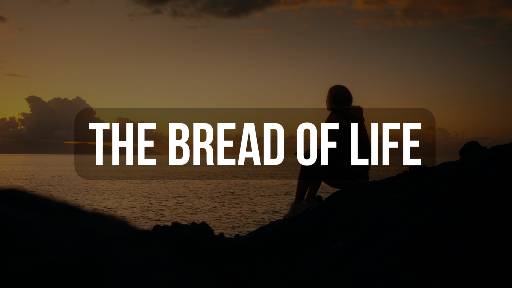-
Parable Of The Loaves And Fish, Revised
Contributed by Craig Condon on Nov 28, 2017 (message contributor)
Summary: Just like we have to eat physical food several times a day in order to live, we need to receive spiritual food on a regular basis. That is why many of us attend services every week--because we need to receive the spiritual food offered by regular worship.
Imagine for a moment that you're part of the crowd in the story of the miracle of the loaves and fish. You've been listening intently to Jesus' words all day. You've traveled a long distance. It's been a long day, you're tired and hungry, and you realize that you didn't bring anything to eat. You have heard Jesus tell his disciples to find food for the people. To make matters worse, you realize that the only food available to feed the people is five small loaves of bread and two small fish. You see Jesus take the food, bless it and give it to the crowd. After the meal, you see the disciples gather up the broken, leftover pieces---enough to fill twelve baskets.
God the teacher feeds our minds. He teaches us not only through His Word, but also through the priest, the celebrant, the organist and choir, the lesson readers-in fact, He teaches through EVERYONE who does his work in the church family. His teaching materials (teachings, laws, etc.) are never used up. In fact, they are multiplied because those of us who are taught by Him can go out and teach others. By doing so, we do our part to fulfill the Lord's Great Commission, namely "Go forth into the world and make disciples of all nations".
God also doesn't care what we offer to Him, as He can use anything and everything we offer to Him in faith. Most people today give in the form of money, but that wasn't always so. Some of you might have heard stories about how in past years ministers were paid in the form of livestock, fruit or vegetables. A few years ago I read a story written by a minister in the United States about his experiences in a church in a Third World country. He wrote that on one particular Sunday the congregation arrived at the church and was greeted by three turkeys and a pig that were tied up outside the door. The previous week's sermon had been about tithing-giving one-tenth of your income to the church. The three turkeys and one pig represented one-tenth of the income of the farmer who gave them, but he gave them in faith because he knew that God's mission required resources to get it done.
In order for God to feed the crowd spiritually, He needed to feed them physically, for without the resource called physical food, the people could not receive the spiritual food. The same idea applies to the Holy Eucharist, for it is through the physical food of the bread and wine that we receive the spiritual food Christ offers, just like the disciples did at the last Supper.
God accepts us for who we are, and in doing so accepts whatever we offer to Him in faith and thanksgiving. Our offering can be big or small. God doesn't care how much we offer, because He uses whatever we offer to do His work in our world and in our daily lives.
When God accepts our individual offerings, he blesses them and combines them with the offerings of fellow believers. He uses this combination to bless and multiply what He gives to his people in return. This is like the parable of the mustard seed-God takes something very small like our individual offerings, and makes it grow into something bigger and better-namely, faith in Him. The loaves and fish represent more than just physical food-they also represent the spiritual food and nourishment God offers us.
God is all-seeing, all knowing, and His love knows no limits. He shows his love by offering spiritual nourishment to His people. The spiritual nourishment is so vast that we can't absorb it all at once. There are always leftovers, just like there were leftovers that were gathered up in baskets by the disciples. Just like we need to eat physical food several times a day to live physically, we need to keep partaking of the spiritual nourishment in order for our faith to live. Our human inability to absorb every single item we are taught forces God to keep reminding us about His love and power, just as our human ability to ignore what He has to teach us forces Him to keep reminding us.
The sharing of the loaves and fishes also represents God sharing His wisdom and love with his children. The leftover food reminds us that God's love and wisdom overflow our mind and soul, as well as our capacity to absorb what He offers to us. Whatever overflows can still be absorbed by us, as long as we continue to seek His spiritual nourishment.
God doesn't offer spiritual food without requiring something from us in return. When He feeds us, He also asks us to nourish, teach, rule and lead others. He asks us to feed the multitudes by offering what we can. As we distribute the spiritual food, it increases and fills the soul, much like the physical food of the loaves and fishes increased and fed the crowds who gathered to hear Jesus. There is an interesting parallel here involving the Holy Eucharist. The Holy Eucharist is a physical representation of the distribution of the spiritual food God offers us. Just like the crowd received the physical food of the loaves and fishes in thanksgiving, we receive the food of bread and wine in thanksgiving for the spiritual food of our Lord's most precious body and blood when we come to Him in faith.

 Sermon Central
Sermon Central


